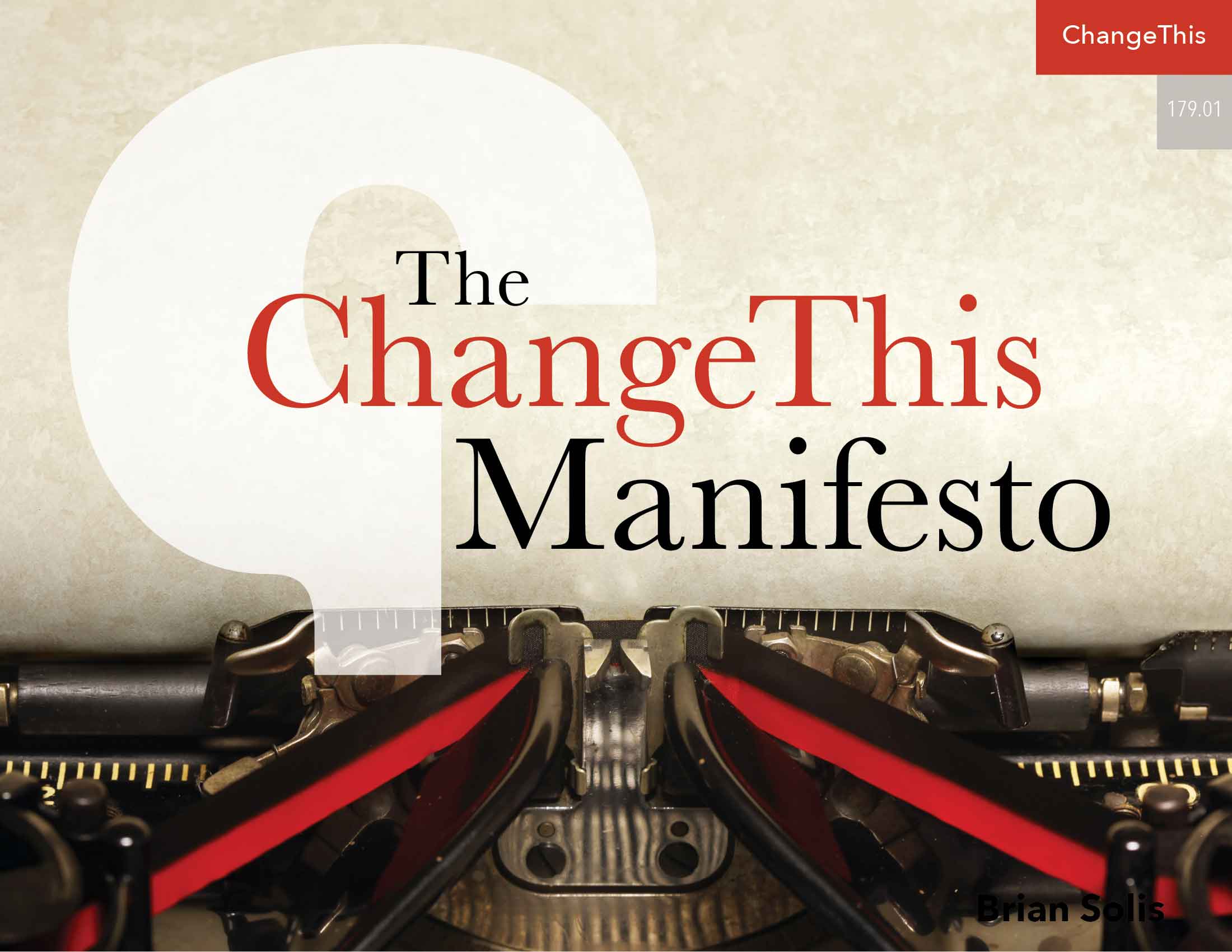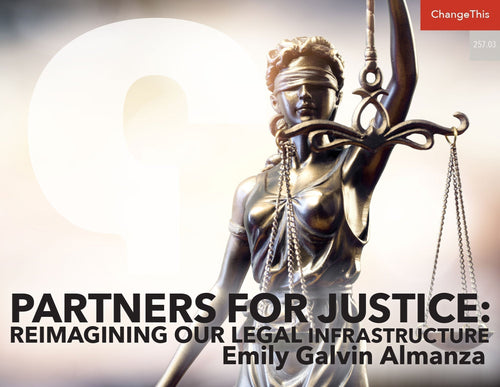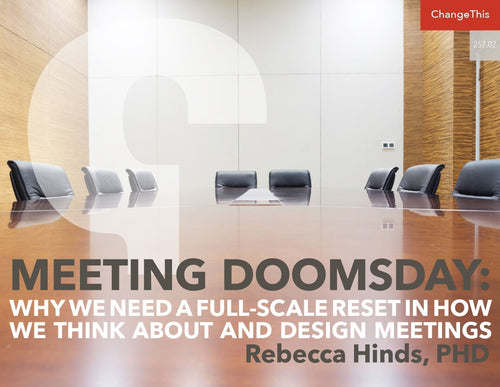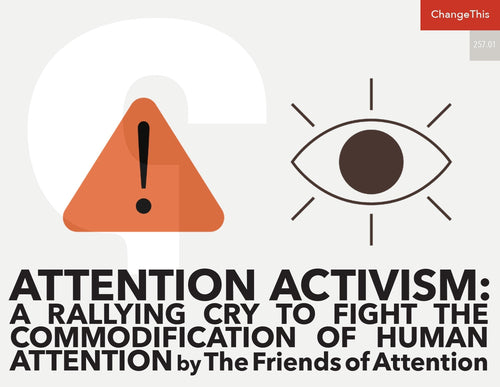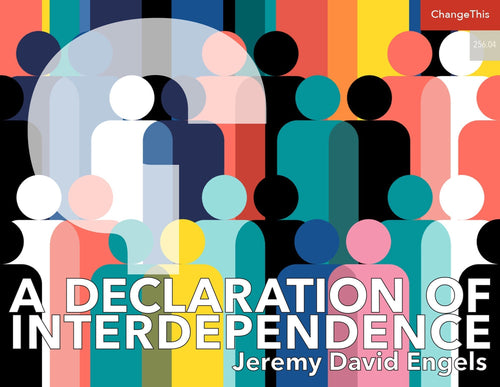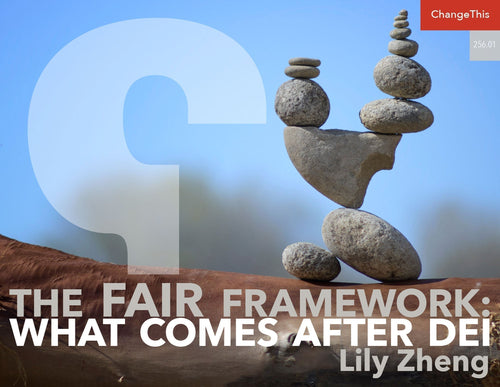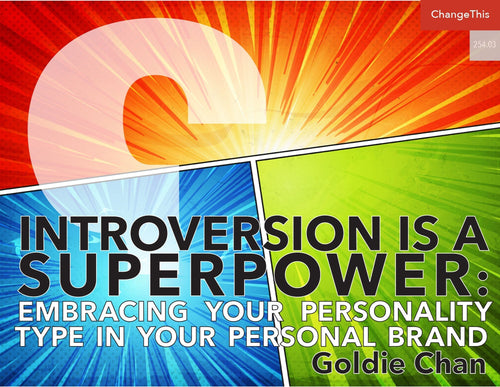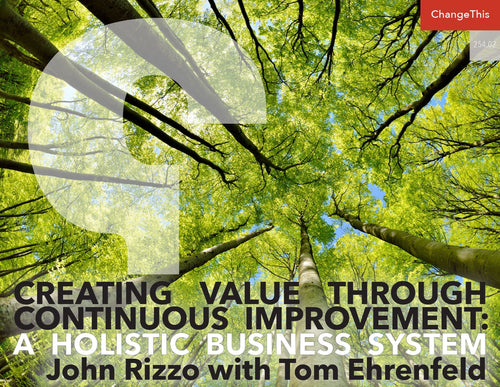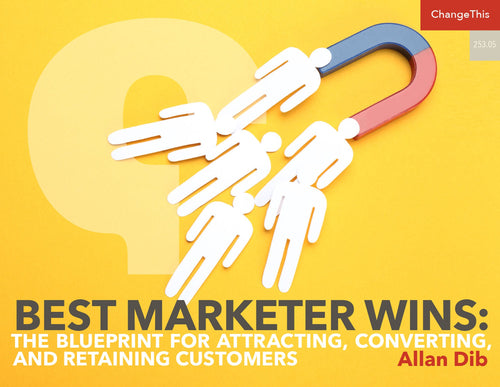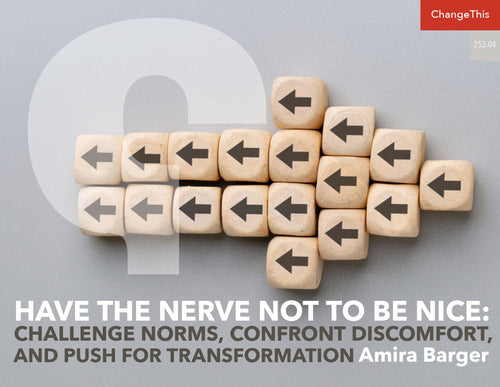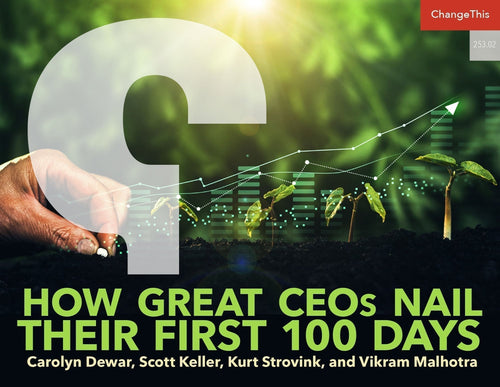The ChangeThis Manifesto
Editor's Note: If you’re here, the first thing I want to say is thank you. Thank you for following us through the years, or for taking the effort to find us for the first time.
ChangeThis is a project that began in the mind of Seth Godin, and built into being in the summer of 2004 by Amit Gupta, Catherine Hickey, Noah Weiss, Phoebe Espiritu, and Michelle Sriwongtong.
It has been awhile since I have revisited the document they produced to explain the intent of the project, the document you’ll find updated below. Reading it in preparation for the transfer of the project to its new home here, I was almost overwhelmed at its prescience. Like the best pieces of writing, it is as relevant today as when it was written almost 15 years ago.
Reading it in our current moment isn’t without some awkwardness. At a time when the press is under constant verbal assault, I tensed up when I read that “the problem lies in the media.” But it has been and still is undeniably true that “in our electronic universe itʼs easier than ever for one charismatic demagogue to sway the opinions of millions of people—without resorting to rational thought, provable assertions or the long term implications of their efforts.” The rise of social media, which has occurred since this piece was first published, has only exacerbated the problem.
At a time when mass-shooters and purveyors of hate call their ahistorical, unhinged ramblings “manifestos,” I now bristle slightly at the term. When I re-read that “ChangeThis doesnʼt publish e-books or manuscripts or manuals. Instead, we facilitate the spread of thoughtful arguments…arguments we call manifestos,” I wondered if it was now time to leave that description behind. We have, in fact, discussed whether we should perhaps stop using the word altogether, and I admit that I have been shying away from it personally for a few years now—substituting in “essays” or “pieces” when telling people what it is we publish. But I also believe that we can’t cede the word to the forces of division, nor erase it from the project’s initial intent. And so we won’t.
The pieces we publish here usually adhere to business and business-adjacent topics, but as I wrote recently when we announced we were changing the name of our company from 800-CEO-READ to Porchlight Book Company:
“The idea that everything—from government and healthcare to education and even our personal lives—should be run like a business, driven by the bottom line, has come to dominate our culture over the past 40 years. As a company that has focused on business books and thinking over that time, we’ve come to believe a better approach is to bring the richness of the rest of our lives into business, to inform our organizations and our work with more holistic, human values.”
ChangeThis had that ethos present in its initial intent and founding. We will do our best to honor it, to continue carving out a space for rational, respectful, and thoughtful arguments about business and governance, current events and culture—how they intersect and overlap and are intertwined in this ongoing experiment we call life.
The big change, other than the URL where you’ll find the nearly 1,000 manifestos we’ve published over the years, is that we will now be publishing one piece every week rather than batches of four to six all at once every month. We believe that, as the media landscape has become even more dense, this new publication schedule allows the ideas and arguments presented a bit more room to breathe and our readers more time to take them in.
We were not able to get our archives in perfect shape before launch, but all past issues and manifestos should be there, and we will be working on improving their appearance and presentation over the coming months, and getting them all in an HTML format in addition to the downloadable PDF we’ve always offered.
With that, I’ll leave you to read the ChangeThis Manifesto with these final words:
Be kind. And, again, thank you—to Seth and the team that brought the site to life, to all the authors who have contributed over the years, and to the readers who have read and shared the ideas published by the project over these many years.
—Dylan Joseph Jerome Schleicher
Sometimes it seems as though our disagreements over everything–from politics to business to the designated hitter rule–are more serious and more divisive than ever before.
People are making emotional, knee-jerk decisions, then standing by them, sometimes fighting to the death to defend their position.
And yet, weʼre optimists.
The team at ChangeThis are optimists because we donʼt believe it has to be this way. We donʼt believe humans evolved to be so bad at making decisions, so poor at changing our minds, so violent in arguing our point of view. Weʼre well aware of how split our country and our world have become, but we donʼt think the current state of affairs is built into our very nature.
THE PROBLEM LIES IN THE MEDIA
We donʼt believe it has to be this way. We donʼt believe humans evolved to be so bad at making decisions, so poor at changing our minds, so violent in arguing our point of view. Weʼre well aware of how split our country and our world have become, but we donʼt think the current state of affairs is built into our very nature.
In the old days, we had the time and inclination to consider the implications of a decision. Everyone wasnʼt in quite so much of a hurry. At the same time, most conversations (and most arguments) were local ones, conducted between people who knew each other.
Today, itʼs very different. Television demands a sound bite. A one hundred word letter to the editor is a long one.
Radio has become a jingoistic wasteland, a series of thoughtless mantras, repeated over and over and designed to fit into a typical commute.
“Weʼre well aware of how split our country and our world have become, but we donʼt think the current state of affairs is built into our very nature.”
Even magazines have lost their ability to present complex arguments that take more than a minute or two to digest. BusinessWeek would rather put another picture of Jack Welch or Bill Gates on the cover than actually teach its readers something new.
Obviously, this creates winners and losers. The winners are the media companies (that exist to sell ads and attract the maximum audience size) and the demagogues and fundamentalist leaders that gain in power when large numbers support them—regardless of the accuracy or usefulness of their position.
In the Internet (and especially blogging), we see the glimpse of an alternative. Taken over time, many of the best blogs create a thoughtful, useful argument that actually teaches readers something.
Alas, blogging is falling into the same trap as many other forms of media. The short form that works so well online attracts more readers than the long form. Worse, most blogs stake out an emotional position and then preach to the converted, as opposed to challenging people to think in a new way.
So weʼre launching ChangeThis. The bet?
Weʼre betting that a significant portion of the population wants to hear thoughtful, rational, constructive arguments about important issues. Weʼre certain that the best of these manifestos will spread, hand to hand, person to person, until these manifestos have reached a critical mass and actually changed the tone and substance of our debate.
So, are you an optimist? Do you believe that if we change the way ideas are communicated, we can challenge the fundamentalists?
Hereʼs our challenge. When we find something your friends and colleagues need to read, will you pass it on?
WHAT’S A MANIFESTO?
ChangeThis doesnʼt publish e-books or manuscripts or manuals. Instead, we facilitate the spread of thoughtful arguments…arguments we call manifestos.
A manifesto is a five-, ten-, or twenty-page PDF file that makes a case. It outlines in careful, thoughtful language why you might want to think about an issue differently.
If we strike a chord, the manifesto will spread. You can email the manifesto to anyone you like, you can even post it on your website or print it out. A great manifesto says something youʼve wanted to say for a while, but does it eloquently and simply and saves you the trouble of writing it yourself.
Read it and pass it on.
HAVE YOU EVER CHANGED YOUR MIND?
Have you ever read something or heard something or seen something and felt the switch flip? Sometimes this happens if youʼre reading a particularly good business book (the way quality and excellence spread through our business culture.) Sometimes it occurs in a bar, in the middle of a thoughtful discussion about politics. Sometimes it just takes one photo on the cover of a magazine.
Weʼre unique in our ability to consider thoughtful arguments and change long-held beliefs. This flexibility is at the core of our democratic ideals.
All too often, though, weʼre led to change our minds on the basis of charisma, not facts. People are so easily influenced by a charismatic leader, the kind of person weʼd be eager to befriend, to have dinner with, to follow. We choose someone based on his personality and then do whatever he tells us to do.
It seems easier that way, and we all do it. We do it for the right boss or the right mate or the right political leader. We go to war or create a new product or move to Jonestown.
The problem, of course, is that in our electronic universe itʼs easier than ever for one charismatic demagogue to sway the opinions of millions of people—without resorting to rational thought, provable assertions or the longterm implications of their efforts.
“Weʼre unique in our ability to consider thoughtful arguments and change long-held beliefs. This flexibility is at the core of our democratic ideals.”
Television and the Internet havenʼt improved our ability to make rational decisions—to change our mind at the right time. Theyʼve made it worse. So what would happen if we used electronic media to return to the days of rational decision-making?
HERE’S HOW IT WORKS
- ChangeThis releases manifestos. We share them with bloggers, with influential readers and with our subscribers.
- If the manifestos strike a chord, theyʼll spread. If you donʼt feel moved, donʼt spread them. The bad ideas will just sit there. The good ones will move.
- As the manifestos spread through our culture, theyʼll leave change in their wake. Changed minds are rare but powerful. The hope is that if we change enough minds, the project will be worth the effort.
WE’RE NOT PARTISANS
Partisan politics is the antithesis of what weʼre trying to do. Why? Because partisan politics starts with, “my party, right or wrong.” We are quick to demonize companies or political parties or individuals. Government by party is too lumpy. If you agree with the Republicans on taxes but the Democrats on the environment, then what do you do?
We donʼt need more Democrats. And we donʼt need more Republicans. We need more patriots. We need more statesmen. We need more people who do what they truly believe is right, not what will help them with the party leadership.
Same thing is true in our work life. Itʼs so easy for CEOs to embrace the flavor of the day, to stick with the pack, to keep their heads down. Far better, it seems, if they would make decisions based on reality, not tradition.
Medicine has the same problem, but far worse. Most doctors hesitate to embrace new techniques—merely because theyʼve been indoctrinated in the old.
“A big part of responding in kind is to be kind. The best discussions in science, medicine, business and politics have always been the civil ones.”
So, we fail when we call people names. We fail when we invoke tradition or a higher power or superstition to explain our decisions. We fail when we decide that the ends justify the means, and when we take callow shortcuts to achieve our ends.
WHY YOU MIGHT NOT LIKE ONE OF OUR MANIFESTOS
Itʼs not just possible, itʼs actually likely that one or more of our manifestos will annoy you.
Are you upset because the argument in the manifesto is flawed? Has the author shaded the truth or used unfair techniques to make her point? If so, write your own manifesto. Stick to the testable and the logical and see if you can get your alternative point of view to spread.
However, you might be upset just because you disagree with the conclusions. But if the thought process is right, if the arguments are sound, if the facts are correct but the conclusions bother you, perhaps the problem isnʼt with the manifesto—it may just be the discomfort people feel when challenged to change.
What weʼre hoping you wonʼt do is shoot the messenger. If you get an email containing a ChangeThis manifesto you donʼt like, the correct response is not to call names, threaten a career, question motivations or call someone French. The right response is to embrace the anti-fundamentalist nature of the dialogue and respond in kind.
A big part of responding in kind is to be kind. The best discussions in science, medicine, business and politics have always been the civil ones. Galileo was right—the earth does move. All the snarkiness that dogged the last twenty years of his life (including condemnation by the Inquisition) didnʼt change the relationship of the earth and the sun. Embracing thoughtful discussion is still the very best way to find the truth. Bullies arenʼt welcome here.
CHOOSE RESPECT
Thatʼs the natural resource that is in the shortest supply, the one that is dwindling fastest.
We believe that everyone is entitled to a point of view. Even fundamentalists (in business, medicine, politics and life) approach these issues with a good heart and the best of intentions. Our goal is not to demonize the opposition—that path doesnʼt help us reach our destination.
Instead, ChangeThis focuses on the rational and thoughtful arguments that help people change their minds to a more productive point of view.
OUR BUSINESS MODEL
We donʼt have one.
It doesnʼt cost very much to run something on the Internet. The authors contribute their work. Our systems were built by some very dedicated summer interns. Every once in a while, weʼll pay some of our expenses via a sponsorship. But the goal isnʼt to make money. The goal is to make a difference.
How can you help? Just do one thing for us: spread these ideas. When you find a manifesto that might change minds, spread it. Print it and distribute it. Post it. E-mail it to your friends. Until we can get comfortable talking about rational arguments, weʼre going to be at a disadvantage when faced with fundamentalists, who arenʼt at all shy about spreading their point of view.
So, please ... be an optimist. Share.

